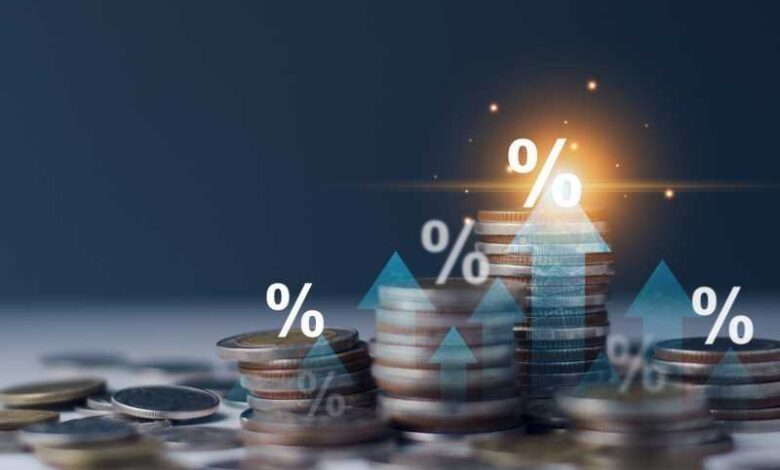Prospects of lower interest rates fade away, reports NBK
The Consumer Price Index reading for January came in higher than expected at 0.4% on a monthly basis, exceeding the forecast of 0.3%.

A report by the National Bank of Kuwait (NBK) reveals a diminishing likelihood of lower interest rates in 2024. This shift is attributed to the unexpected rise in inflation data in the United States, which has sparked substantial fluctuations in currencies, stock markets, and bond markets overall.
The report noted that the Consumer Price Index (CPI) reading for January came in higher than expected at 0.4% on a monthly basis, exceeding the forecast of 0.3%. Additionally, the yield on 10-year Treasury notes reached 4.31%, up from 4.15%.
As a result, expectations for interest rate cuts in 2024 have diminished, with the probability of a cut in March falling to 8.5%. This is due to entrenched inflation and a robust labor market, which do not bolster the Federal Reserve’s confidence that inflation will sustainably move towards the 2% target with the implementation of a more flexible monetary policy.
The report also highlighted that the robustness of the labor market and wage growth signal that consumer spending will stay robust, bolstering the overall economy and maintaining its trajectory for expansion.
Despite these vulnerabilities, indications show that the slowdown in commodity prices is easing and economic growth is sustainable. Import prices increased in January, implying that inflationary pressures could persist, yet the strong labor markets and wage growth underscore that consumer spending will continue to be a vital pillar of the US economy.
Inflation rate
The NBK report also discovered that inflation in the United Kingdom stabilized at 4% in January, slightly below the anticipated 4.1%.
Meanwhile, core inflation remained steady at 5.1%, whereas services inflation increased to 6.5% from the previous month’s 6.4%. This data was welcomed by the Bank of England, as markets anticipate imminent interest rate cuts due to inflation seemingly moving towards the target level of 2%. However, wage growth surged by 6.2% year-on-year, twice the pace the Bank of England deems consistent with inflation reverting to 2%.
Meanwhile, the UK economy slipped into a technical recession in late 2023, delivering a blow to Prime Minister Rishi Sunak’s promise to achieve growth ahead of the next general election.
GDP data revealed a contraction of 0.3% in the fourth quarter, compared to a decline of 0.1% in the previous quarter, placing the UK in a technical recession alongside Japan, albeit a mild one.
Chinese consumer prices slide
The report also revealed that Chinese consumer prices plunged further into deflationary territory last month, marking their most significant drop since the peak of the global financial crisis in 2009. The country’s consumer price index (CPI) experienced a 0.8% annual decline in January. This decline represents the largest dip in the index since September 2009 and marks the fourth consecutive month of decrease.
The National Bureau of Statistics attributed this sharp decline to the high base of comparison from the previous year, as prices surged notably during the Lunar New Year holiday period in 2023, pushing the CPI up by 2.1%.













